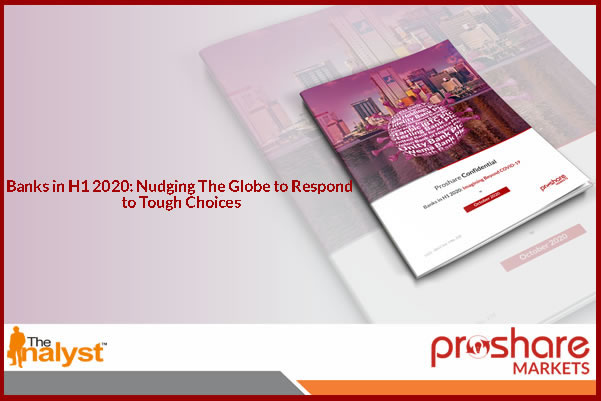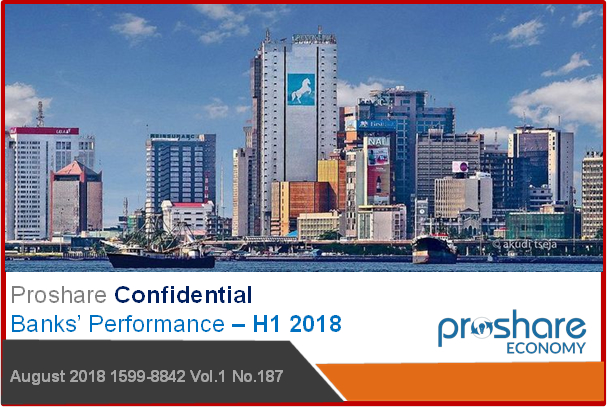A Regulator’s Need to Reshuffle the Card Deck
Nigeria's Central Bank does not openly classify domestic banks into tier 1 and tier 11. Nevertheless, there is a broadly accepted notion of banks' systemic importance, riskiness, and rating.
Prospective Investors in local Nigerian banks use this perception of tier 1 banks previously best reflected by the acronym FUGAZE (FBNH, UBA, Access Holdings, Zenith Bank, and ETI) to make critical investment decisions.
The Proshare research and review, in this report, of the basis of the use of FUGAZE as tier 1 banks question the validity of the acronym as a shorthand for Nigeria's top tier banks. Indeed, the outcome of the research indicates that banks like Stanbic IBTC and Fidelity Bank should qualify for the top-tier classification.
The report also noted that some banks might be systemically important because of their age, asset size, and customer distribution. These banks might not be tier 1 even though they are systemically important. FBNH, for example, is systemically important for its age, rural penetration, and branch network. Still, it may be wrong to classify it as a tier 1 bank in its present operational state. The bank's relatively high cost-to-income ratio (CIR), low loan-to-deposit ratio (LDR), and forbearance status would make it a borderline tier 1 institution but a higher-end tier 11 bank more accurately.
The Proshare report argued for adopting a Bank Strength Index (PBSI), which provides an objective basis for the classification of banks and enables market stakeholders to understand the fundamentals of tier 1 and 2 descriptions for local Nigerian deposit money banks (DMBs).
The Proshare Index goes beyond simple operational numbers and attempts to use proxies for the quality of management and board oversight. The regression analysis showed that board diversity was essential for board performance. At the same time, many believe that the existence of independent directors was a strong indicator of qualitative board oversight; the outcome of the research could not confirm this hypothesis. However, the regression did establish that gender mix was an essential determinant of board and management performance and that banks with more gender-diverse boards showed a better return on equity (ROE).
In the light of the report's outcome, the banking industry may need the adoption of metrics like the PBSI to establish a firm and verifiable basis for bank classification into tiers 1 and 2. The CBN may need to evolve a metrics-based calibration of banks and place them officially into separate tiers. The advantage of the approach would be:
- Prospective investors, financial advisers, and customers would have an objective basis for bank tier classification
- Relative risk assessments of banks would be clearer
- Equity market pricing of banks would be more objective
- Incentivized mobility of banks to upper tiers become founded on well-defined performance indicators
- Peer comparison and competitive assessments become less notional and more data-based
With regular monitoring of banks concerning fundamental indices, the deck of banks in tiers 1 and 2 will change periodically, providing greater market clarity about bank status. A static notion of tier 1 banks as FUGAZE distorts relative bank strength and status assessments and leads to wrong funding options and investment access. The industry captains need to cooperate with the CBN to formalize the bank classification (see illustration 22 below).
Illustration 22: Tier 1 Banks Recalibration, the Old and New
Of course, people will point out that such classification does not exist in Western European and American markets, but neither does FUGAZE. Yet, Nigerians have used the acronym to refer to the country's top banks. The point is a banking system operation must be agile enough to accommodate nuances in different economies.
Change is difficult, but it is necessary; corporate and systemic agility and flexibility separate the living from the dead. One only has to ask the dinosaurs.
Proshare's research suggests the need for a broad industry consensus which would include the CBN, the banks, the Chartered Institute of Bankers (CIBN), the Bank Directors Association of Nigeria (BDAN), the Nigerian Deposit Insurance Corporation (NDIC), and the Asset Management Company of Nigeria (AMCON). The consensus would agree on the criteria for classifying banks into tiers 1 and 2 and establish the framework for the periodic review of the criteria using Proshare's research as a baseline.
Futurist and fintech honcho Brett King recently noted that "banking is what you do and not where you go" as this becomes increasingly evident, the whole idea of banking as distinct from banks will initiate a system reset and require recalibration of banks and their sphere of competitive importance. Nigerian banks and their regulators must set the markers for proper classification and assessment in real-time in a world dominated by innovation and collaboration.
We note that the available data on bank ratings applies to different periods the Proshare Bank Strength Index (PSBI) for 2021 did not include credit ratings. However, the PBSI methodology would be updated to include bank credit ratings in a follow-up report in June 2022.
Downloadable Versions of Tier 1 Banks Report (PDF)
1. Executive Summary: Nigeria’s Banking Industry: The Case for Redefining Tier 1 Banks - May 28, 2022
2. Full Report: Nigeria’s Banking Industry: The Case for Redefining Tier 1 Banks - May 28, 2022
 Lagos, NG • GMT +1
Lagos, NG • GMT +1











 823 views
823 views
































 Sponsored Ad
Sponsored Ad
 Advertise with Us
Advertise with Us









